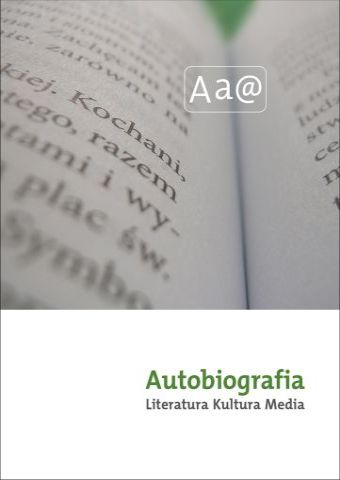






| Authors: |
Paweł
Wolski
Uniwersytet Szczeciński |
| Keywords: | experience autobiographism Italian literature comparative studies Holocaust studies |
| Data publikacji całości: | 2014 |
| Page range: | 18 (21-38) |
| 1. | „Coralli”: wydania z lat 1963–1968, 1970, „Nuovi Coralli”: 1971–1976. |
| 2. | Antonicelli Franco, L’ultimo della catena, „La Stampa” 31.05.1958. |
| 3. | Bielecki Marian, Kłopoty z innością, Universitas, Kraków 2012. |
| 4. | Bone James, Levi’s «ugly wartime secret» uncovered, „The Times” 17.04.2013. |
| 5. | Borgonovo Francesco, I gendarmi della memoria linciano il tradittore Luzzatto, „Libero” 18.04.2013. |
| 6. | Camon Ferdinando, Rozmowa z Primo Levim, przeł. Eugeniusz Kabatc, Państwowe Muzeum |
| 7. | w Oświęcimiu, Oświęcim 1997. |
| 8. | Cavaglion Alberto, Notizie su Argon. Gli antenati di Primo Levi da Francesco Petrarca a Cesare Lombroso, |
| 9. | Instar Libri, Torino 2006. |
| 10. | Cavaglion Alberto, Violence et guerre partisane: le „vilain secret” de Primo Levi, „L’Atelier international |
| 11. | de recherches sur les usages publics du passé”, www.ehess.dynamiques.fr/usagespublicsdupasse/ |
| 12. | rubriques/affaires-et-controverses/alberto-cavaglion-violence-et-guerrepartisane- |
| 13. | le-secret-de-primo-levi.html, data publikacji 12.05.2013 (dostęp 12.08.2013). |
| 14. | Cavaglion Alberto, Cavaglion: ma la „voce” raccolta dal curato è realistica, „La Stampa” 4.06.2013. |
| 15. | Culler Johnattan, Literatura w teorii, przeł. Maciej Maryl, Universitas, Kraków 2013. |
| 16. | Del Boca Angelo, Italiani, brava gente?: un mito duro a morire, Neri Pozza Editore, Vicenza 2005. |
| 17. | Eagleton Terry, The Event of Literature, TJ International Ltd, Cornwall 2012. |
| 18. | Ferrero Ernesto, La fortuna critica. W: Primo Levi: Un’antologia della critica. A cura di Ernesto Ferrero, |
| 19. | Einaudi Editore, Torino 1997. |
| 20. | Ferrero Ernesto, Primo Levi in Italia. W: Diffusione e conoscenza di Primo Levi nei paesi europei. |
| 21. | Atti del convegno. Torino 9–10–11 ottobre 2003. A cura di Giovanni Tesio, Centro Studi Piemontesi, |
| 22. | Torino 2005. |
| 23. | Fogu Claudio, The Historic Imaginary: Politics of History in Fascist Italy, University of Toronto |
| 24. | Press, Toronto 2003. |
| 25. | Jedwabne bez stereotypów. Z prof. Tomaszem Szarotą, historykiem II wojny światowej, rozmawiają |
| 26. | Agnieszka Sabor i Marek Zając, „Tygodnik Powszechny” 2002, nr 17. |
| 27. | Klüver Henning, Das hässliche geheimnis, „Süddeutsche Zeitung” 24.04. 2013. |
| 28. | Korhonen Kuisma, Introduction to Part 1. Hayden White and Textuality of History. W: Tropes for the |
| 29. | Past. Hayden White and the History / Literature Debate. Edited by Kuisma Korhonen, Rodopi, |
| 30. | Amsterdam–New York 2006. |
| 31. | Lerner Gad, Il caso Primo Levi. Quell’episodio dimenticato della Resistenza, „Repubblica” 16.04.2013. |
| 32. | Levi Primo, Opere I. A cura di Marco Belpoliti. Introduzione di Daniele Del Giudice, Einaudi Editore, |
| 33. | Torino 1997. |
| 34. | Luzzatto Sergio, Partigia. Una storia della Resistenza, Mondadori, Milano 2013. |
| 35. | Nycz Ryszard, Poetyka doświadczenia. Teoria – nowoczesność – literatura, IBL PAN, Warszawa 2012. |
| 36. | Owczarski Wojciech, Miejsca wspólne, miejsca własne. O wyobraźni Leśmiana, Schulza i Kantora, |
| 37. | Słowo/obraz terytoria, Gdańsk 2006. |
| 38. | Pansa Giampaolo, Il sangue dei vinti. Quel che accadde in Italia dopo il 25 aprile, Milano 2003. |
| 39. | Pavone Claudio, Una guerra civile. Saggio sulla moralità della Resistenza, Einaudi Editore, Torino |
| 40. | 1991. |
| 41. | Piotrowska Anita, Gross trafia pod strzechy, „Tygodnik Powszechny” 2012, nr 46. |
| 42. | Sarfatti Michele, Gli ebrei nell’Italia fascista. Vicende, identità, persecuzione, Einaudi Editore, |
| 43. | Torino 2000. |
| 44. | Scarpa Domenico, Soave Irene, Le vere parole di Levi, „Il Sole 24 Ore” 8.04.2012, www.primolevi.it |
| 45. | (dostęp 12.08.2013). |
| 46. | Tesio Giovanni, Su alcune giunte e varianti di „Se questo è un uomo”. W: tegoż, Piemonte letterario |
| 47. | dell’Otto-Novecento. Da Giovanni Faldella a Primo Levi, Bulzoni Editore, Roma 1991. |
| 48. | Ullern Isabelle, Hériter la violence de l’histoire ? Pourquoi refuser une tentative d’incrimination de |
| 49. | Primo Levi qui banalise le témoin moral et la littérature des écrivains survivants, „L’Atelier international de recherches sur les usages publics du passé”, www.ehess.dynamiques.fr/usagespublicsdupasse/ |
| 50. | le-secret-de-primo-levi.html, data publikacji 10.06.2013 (dostęp 12.08.2013). |
| 51. | White Hayden, Proza historyczna, przeł. Rafał Borysławski, Tomasz Dobrogoszcz, Ewa Domańska, |
| 52. | Dorota Kołodziejczyk, Jacek Mydla, Maciej Nowak, Arkadiusz Żychliński, red. Ewa Domańska, |
| 53. | Universitas, Kraków 2009. |
| 54. | White Hayden, Realizm figuralny w literaturze świadectwa, przeł. Ewa Domańska, „Literatura na |
| 55. | Świecie” 2004, nr 1–2. |